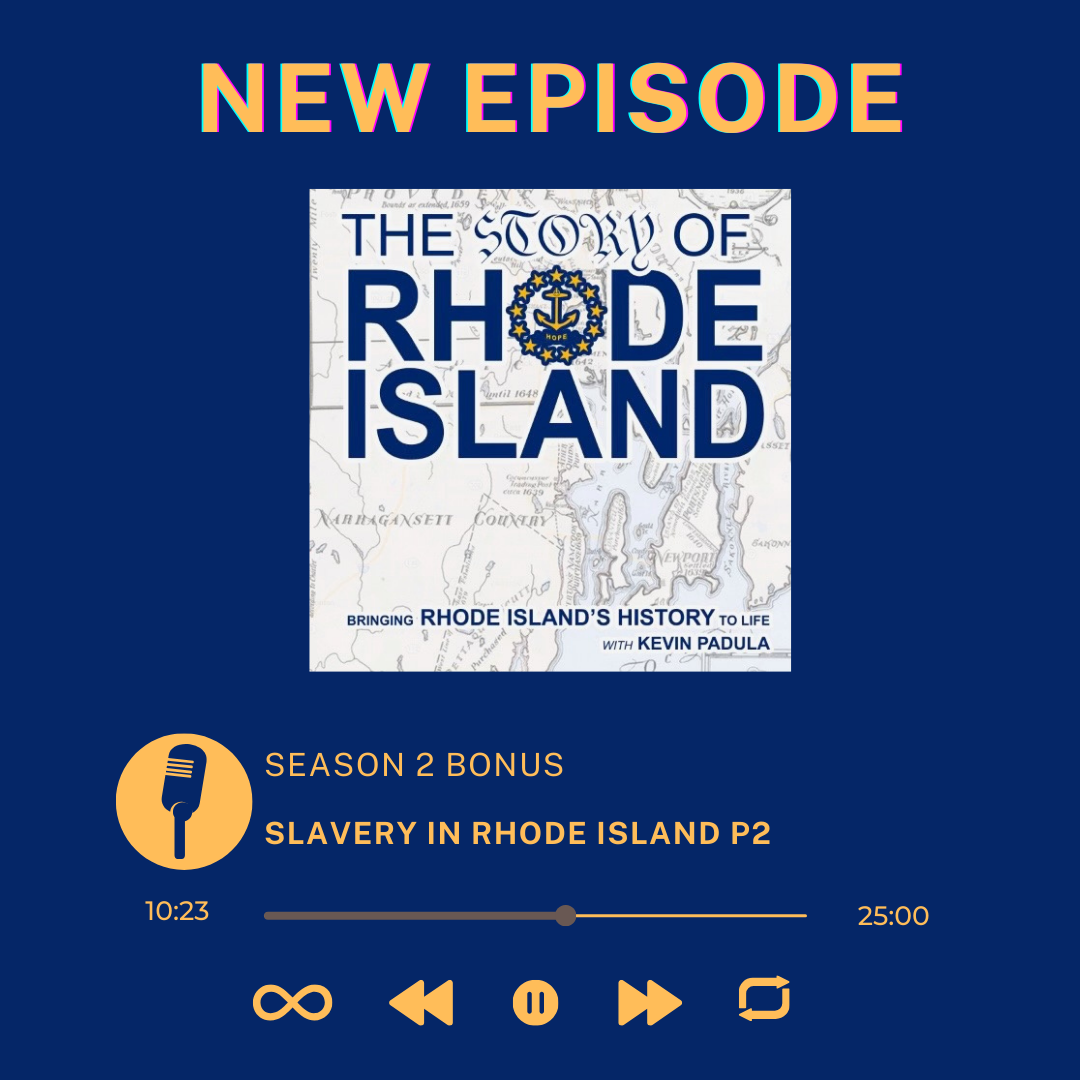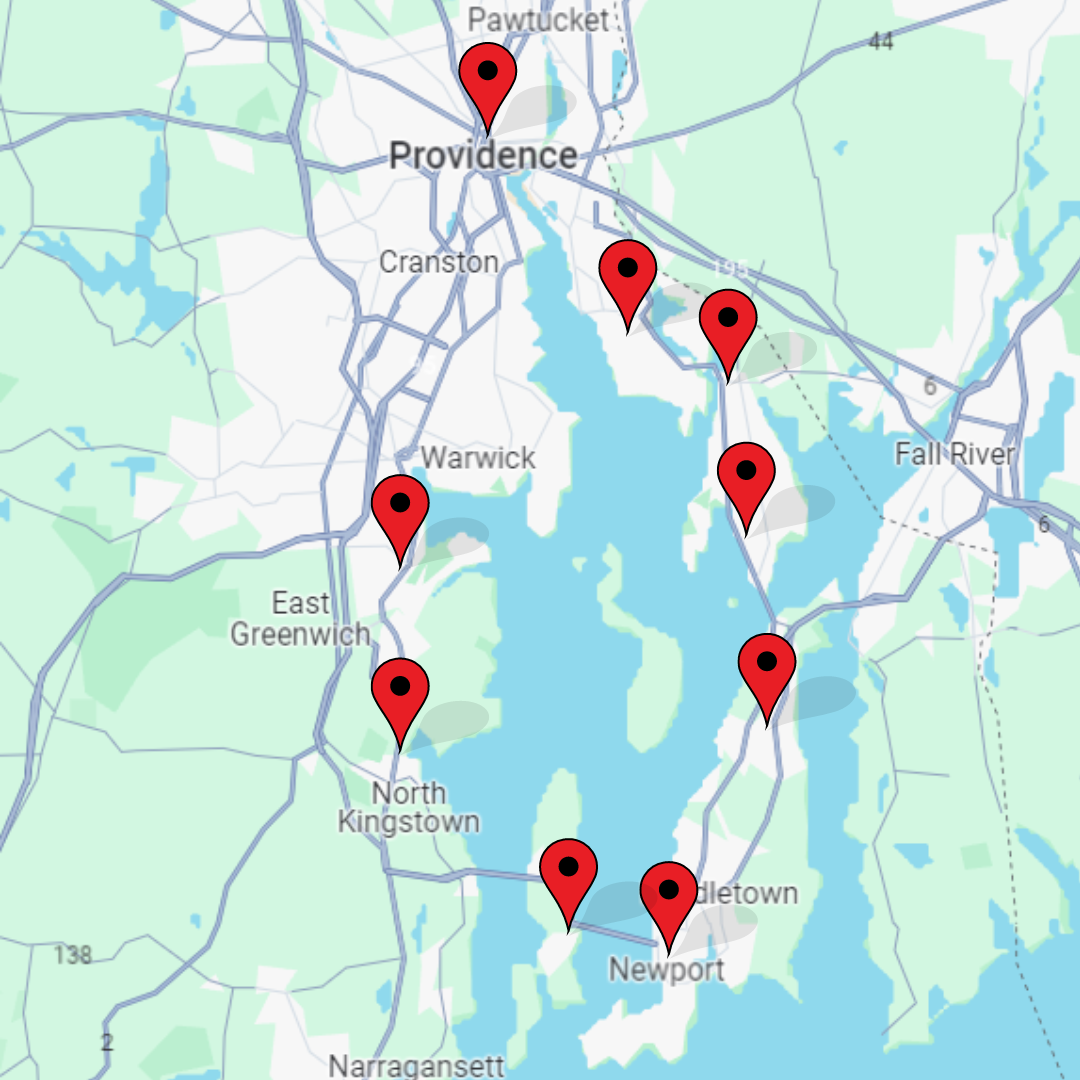With early abolitionists attempting to end Rhode Island's connection with slavery, the state's merchant and industrial leaders continue to find ways to profit off of the business of slavery right up to the Civil War.
26 minutes | 1784 - 1860
Hear About:
📜The early abolitionists who attempted to end Rhode Island's involvement with slavery.
📜How Rhode Island continued dominating the slave trade even after the General Assembly made it illegal.
📜The early industrialists who helped Rhode Island continue its involvement in the business of slavery.

Moses Brown
Early abolitionist and a man who dedicated dedicated to ending Rhode Island's involvement in slavery.
John Brown
Although a brother of Moses Brown, John Brown fiercely opposed Moses' 1784 bill that attempted to ban both slavery and the slave trade in Rhode Island.
James DeWolf
One of the most notorious slave traders in American history and a man who profited off of the trade long after it was banned in Rhode Island.
Rowland G. Hazard
Along with being one of the most successful industrialists in early Rhode Island, Hazard's mill in Peace Dale manufactured "negro goods" that were sold to plantations throughout the south.

Rhode Island Slave History Medallions
Situated throughout Rhode Island are 12 slave medallions. These plaques are part of a statewide public awareness program aiming to label historic sites connected to the history of slavery in Rhode Island. Medallions are located in towns across Rhode Island, including Providence, Warren, Bristol, Portsmouth, Newport, Jamestown, North Kingstown, and East Greenwich.


Peace Dale Manufacturing Company | South Kingstown, RI
The Peace Dale Manufacturing Company was a prime example of a mill in southern Rhode Island that primarily focused on producing negro goods. By selling these cheaply made goods to slave owners throughout the south, Rhode Island was able to keep its connection with slavery alive well into the 19th century.


Peace Dale Manufacturing Company 1900 vs. 2024
You can still see the mill buildings standing from the Peace Dale Manufacturing Company today. However, they're now home to wonderful business like Rockspot and Whalers.
Jeans were originally a negro good fabric
Kentucky jean was one of the negro good fabrics made in the mills of southern Rhode Island. Obviously, it was not nearly as smooth or comfortable as the jeans you might have on today. The jeans that were worn by enslaved field workers in the south were extremely rough but managed to catch they eye of a designer known as Levi Strauss while setting up a store for miners in San Francisco. Strauss' jeans grew in popularity in the early 20th century and would go on to become a household stape over the next 100 years.
James DeWolf had a man kidnapped to protect his slave trading vessel
In 1799, the Rhode Island government caught James DeWolf participating in the slave trade, a form of commerce that had been banned in the state for over 10 years. As part of his punishment, the government confiscated his ship, the Lucy, and was planning on auctioning it off in Bristol. However, before that took place, DeWolf was informed that the man who would be bidding on the ship on behalf of the goverment was Samuel Bosworth, local Surveyor and Bristol resident. To prevent Bosworth from attending the auction, DeWolf had him kidnapped and dropped off at the foot of Mount Hope, miles away from the auction in downtown Bristol. By the time Bosworth made it back, the auction was over and one of DeWolf's ship Captains won the bid, enabling DeWolf to once again use the ship for slave trading.
- Sons of Providence: The Brown Brothers, the Slave Trade, and the American Revolution by Charles Rappleye
- Dark Work: The Business of Slavery in Rhode Island by Christy Clark-Pujara
- James DeWolf and the Rhode Island Slave Trade by Cynthia Mestad Johnson
- The Notorious Triangle: Rhode Island and the African Slave Trade, 1700-1807 by Jay Coughtry
- VIDEO: 350th Anniversary Speaker Series: "Setting the Record Straight" by Tim Cranston
- WEBSITE: Slave Voyages Database
- WEBSITE: Rhode Island Slave History Medallions